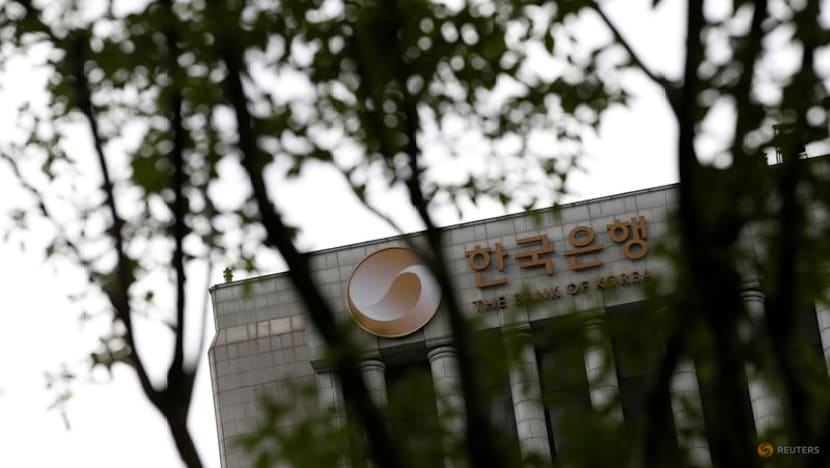South Korea signals end to rate cuts as FX, price risks grow

The logo of the Bank of Korea is seen on the top of its building in Seoul, South Korea, July 14, 2016. REUTERS/Kim Hong-Ji
SEOUL :South Korea's central bank kept interest rates unchanged for a fourth straight meeting on Thursday as a tumbling won reduced scope for further easing, signalling the bank could be nearing the end of its current rate cut cycle.
The Bank of Korea's monetary policy board voted to keep the benchmark interest rate unchanged at 2.50 per cent, in line with expectations. It also raised both growth and inflation forecasts for this year to 1.0 per cent and 2.1 per cent respectively.
Crucially, the BOK omitted language seen in its previous statement saying the board would "maintain its rate cut stance," and replaced it with "the Board will decide whether and when to implement any further Base Rate cuts."
The hawkish turn pushed the December futures on three-year treasury bonds down and comes as other Asia Pacific central banks such as Japan, Australia and New Zealand turn less dovish.
"As the won stayed weak and has been showing herd-like behaviour, I'm worried if it could work to increase prices," Governor Rhee Chang-yong said in a news conference.
"Businesses focusing on domestic demand could lose out although the impact on overall domestic economy is a bit unclear for now."
ECONOMY FACING COMPLEX RISKS
The BOK, which has cut rates four times since last year, is facing a more complex outlook than peers such as the U.S. Federal Reserve.
Asia's fourth-largest economy is entering a consumption upswing and its currency is slumping, leaving little room for policymakers to support growth without fueling inflation.
Analysts have pushed back the next predicted cut to the first quarter of next year from late this year as they expect policymakers to pay more attention to a declining won and rising financial stability risks from persistent housing price gains in Seoul.
"It's difficult to completely rule out further easing but there is little likelihood of further rate cuts. We are most likely to see rates on hold for the time being," said Ahn Jae-kyun, an economist at the Korea Investment Securities.
"It's too early to price in any rate hikes as a sharp downturn in the economy is still possible in the second quarter, which may prompt policy response."
U.S. stock buying by local residents and pension funds, which Rhee said "was worrisome," pushed the won almost 4 per cent lower this quarter, making it the second-worst performing Asian currency after the yen.
Seoul apartment prices picked up steam, rising 0.2 per cent in the week through November 17, underscoring challenges for the BOK as it considers whether to resume easing.
Rhee on Thursday said three of the board's seven members were open to a rate cut over the next three months, down from four when the board last reviewed rates.
On Wednesday, finance minister Koo Yun-cheol said the government had met with the National Pension Service (NPS), exporters and brokerages to discuss measures to stabilise the dollar-won market, but stopped short of introducing specific measures to address the situation.
For 2026, the BOK sees the economy expanding 1.8 per cent and headline inflation at 2.1 per cent.













